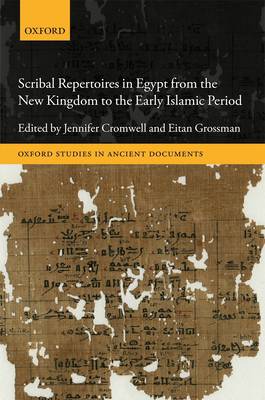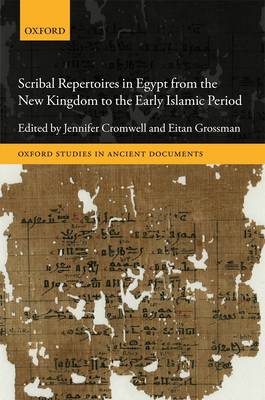
- Retrait gratuit dans votre magasin Club
- 7.000.000 titres dans notre catalogue
- Payer en toute sécurité
- Toujours un magasin près de chez vous
- Retrait gratuit dans votre magasin Club
- 7.000.0000 titres dans notre catalogue
- Payer en toute sécurité
- Toujours un magasin près de chez vous
Scribal Repertoires in Egypt from the New Kingdom to the Early Islamic Period
201,45 €
+ 402 points
Description
This volume reconceptualizes scribal variation in pre-modern Egypt from the perspective of contemporary historical sociolinguistics, as a rich source for understanding the scribes' complex socio-cultural environments. A series of case studies applies this framework to scribal variation spanning thousands of years, from Pharaonic to Islamic Egypt.
Spécifications
Parties prenantes
- Editeur:
Contenu
- Nombre de pages :
- 394
- Collection :
Caractéristiques
- EAN:
- 9780198768104
- Date de parution :
- 21-12-17
- Format:
- Livre relié
- Dimensions :
- 240 mm x 167 mm
- Poids :
- 714 g

Les avis
Nous publions uniquement les avis qui respectent les conditions requises. Consultez nos conditions pour les avis.





